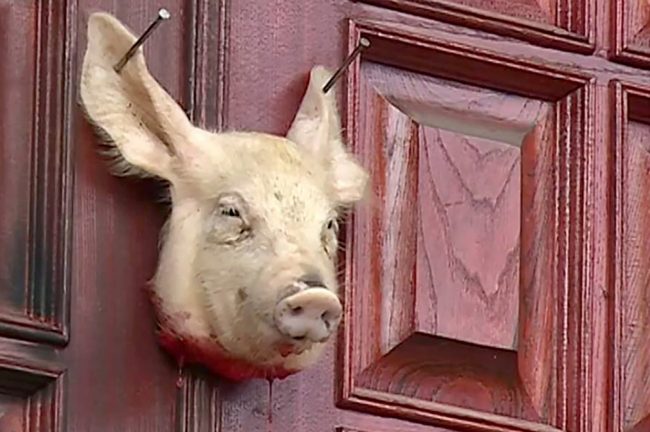Georgian court orders authorities to provide water connection for Kobuleti Muslim school



A court in Georgia has ordered local authorities in Kobuleti to provide water and sewage connections to a Muslim boarding school. The local mayor’s office had argued they could not do so because of ‘objections from neighbours’ leading to the school remaining closed.
The school made headlines in 2014 after a pig’s head was nailed to its door.
The complaint was filed by the Public Defender’s Office, which in 2016 established that depriving these services to the school was discrimination against the Muslim community in Kobuleti, a town in western Georgia’s Black Sea coast.
The Public Defender’s Office had addressed the municipality recommending it order Kobuleti Water, a company under its purview, to connect the school.
This was the first time the Public Defender’s Office used its authority under 2014 anti-discrimination legislation to take an administrative body to court for failing to fulfil their recommendation.
On Friday, Batumi City Court ruled that the Kobuleti Mayor’s Office must fulfil the recommendation and provide water and sewage connections to the school.
It is not yet known whether the Mayor’s Office will appeal the court’s ruling. Teona Gegidze, head of the Legal Department at the Mayor’s Office, told OC Media they would decide after receiving the official reasoning for the judgment.
At the court hearing, they argued they were unable to provide the service to the Muslim school due to objections of Christian neighbours.
‘We were unable to fulfil the Public Defender’s recommendation because the local population was against it. It is a heavily populated tourist area and neighbours were against opening the educational facility. We tried [to connect the school] several times but were unable to do so even with the presence of police’, said Gegidze.
She said it was important for the Mayor’s Office that the issue is resolved peacefully.
‘We have met and discussed this issue with the local population, but we were unsuccessful. When we receive the court’s decision, we will introduce it to the population and plan further moves’, said Gegidze.
Keti Shubashvili, the head of the Equality Department at the Public Defender’s Office, said that the Mayor’s Office should have tried alternative measures to achieve connect the school.
Shubashvili told OC Media that a long time had passed since they issued their recommendation and yet the municipality was unable to name any concrete actions they had taken to resolve the issue.
‘Our second argument is that they are obliged by law to provide this service [to the Muslim school], and the fact that several people have objections regarding their responsibility cannot be considered a legitimate argument from officials.’
Pig’s head nailed to the school door
In September 2014, a pig’s head was nailed to the school’s door as some local people objected to a Muslim school opening in the neighbourhood.
A group of local Christians organised several rallies, where they said prayers and warned they would not allow the school to open.
A criminal case into the event launched in 2014 is still ongoing and has now been sent to the Appeals Court.
Despite four years having passed since the incident, the school has still been unable to open and the state of the building has begun to deteriorate.
All three instances of the national courts have ruled that hindering Muslims from opening the school was discrimination on religious grounds.
However, despite complaints from local Muslims that police were only ‘passively observing developments’, the courts have as yet not recognised the Interior Ministry’s responsibility to take action.
The case has been filed to the European Court of Human Rights by the Human Rights Education and Monitoring Centre, a local rights group representing local Muslims’ rights in this case.
Unresolved religious conflicts
According to the Public Defender’s 2017 report, violence against religious minorities and unsolved criminal cases into this violence is a major problem in Georgia. The report cited several high-profile cases of discrimination against Muslims.
In one, three Muslims were injured in a brawl in the village of Adigeni in southern Georgia in February 2016. The conflict arose after the local Muslim population appealed to the municipality to allocate land for a separate cemetery.
An investigation into the case was launched for petty hooliganism but was closed without identifying the case as an example of discrimination.
In another case, Vagif Akperov, the former Sheikh of the Georgian Muslims’ Union, claimed he was blackmailed into resigning in December 2013.
Akperov said he was summoned to the Ministry of Internal Affairs where he was forced to write a letter of resignation under threat of having information about his private life released.
An investigation by the Prosecutor’s Office into the allegations is continuing.
[Read More about unresolved religious conflicts in Georgia on OC Media: Ombudsman: Religious conflicts still unresolved in Georgia]
Privileged Orthodox Church
Privileging the Georgian Orthodox Church over other religious groups in tax and state property legislation has been ruled discriminatory and unconstitutional by Georgia’s Constitutional Court.
In July, the court issued rulings on two cases, both filed by religious minority groups against unequal treatment by the state.
Eight religious groups asked the court to review regulations in the tax code that exempted the Georgian Orthodox Church from paying VAT when building, renovating, and painting churches. They argued the policy was discriminatory as they applied to no other religious groups in Georgia, which they said contradicted their constitutional right to equality.
They also addressed the Constitutional Court regarding the Georgian state property law, which allows the Georgian Orthodox Church to be granted ownership of state property free of charge. Other religious groups in the country can only be granted the right to use state property.
Both of the appeals have been upheld and the court ruled that the privileges for the Orthodox Church were discriminatory.
[Read more on the Constitutional Court’s rulings on OC Media: Court rules privileges for Georgian Orthodox Church unconstitutional]









